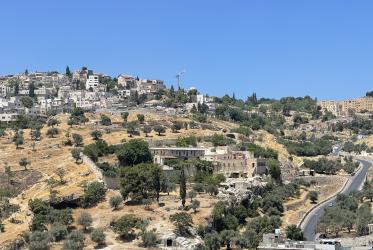Displaying 1 - 12 of 12
ACT Alliance general secretary: “equity is not negotiable”
26 September 2023
Ukraine: Responding to humanitarian need
08 September 2022
Webinar explores intersection of debt cancellation and anti-racism
09 December 2021
“Your life is in peace when you collect the olives"
29 October 2020










